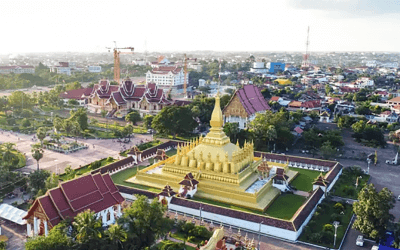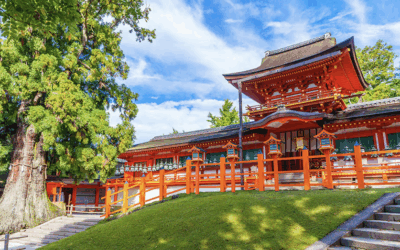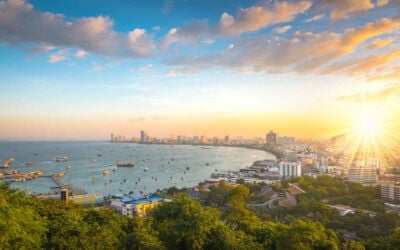Bali, the famed Island of the Gods, has long been a top destination for travelers seeking an exotic escape.
But more and more, savvy investors are discovering the potential of this Indonesian gem as a place to buy property.
Whether you’re dreaming of a tropical retirement haven, a lucrative rental investment, or a combination of both, Bali’s allure is undeniable.
However, navigating Indonesia’s property market as a foreigner comes with its unique set of challenges and considerations.
In this guide, we’ll walk through the process of buying property in Bali as a foreigner, from ownership structures to finding your ideal location and closing the deal.
Foreign Property Ownership in Indonesia
The first thing to grasp is that Indonesian law prohibits foreigners from directly owning freehold land, known as Hak Milik.
However, there are several alternative arrangements that allow foreign investors to control and benefit from Bali property:
Leasehold (Hak Sewa): This is the most straightforward option, enabling you to lease land and property for up to 80 years. While you won’t own the land outright, you’ll have full control over any structures you build on it.
Right to Use (Hak Pakai): With a valid stay permit (KITAS), foreigners can obtain Hak Pakai, granting the right to use the land for up to 80 years. The key advantage is that this title can be held in your personal name.
Through a foreign-owned company (PT PMA): By establishing a foreign-owned limited liability company, you can purchase freehold property. The company becomes the legal owner, while you maintain control as the shareholder.
It’s crucial to consult with a reputable lawyer and notary to determine the best structure for your specific situation and ensure everything is above board. They can guide you through the documents and immigration process.
Bali’s Property Hotspots: Where to Invest
From small condos to massive villas, you’ll find that Bali offers a diverse range of locations to suit practically every taste and budget.
Below are five of the most popular neighborhoods on the island for foreign property buyers:
Seminyak
This chic beachside town is known for its high-end resorts, trendy restaurants, and boutique shopping. It’s a top choice for luxury villa rentals and attracts a sophisticated crowd.
Canggu
A surfer’s paradise turned hipster haven, Canggu boasts a laid-back vibe, cool cafes, and co-working spaces. It’s popular with digital nomads and younger investors.
Ubud
Nestled in the lush central hills, Ubud is Bali’s cultural heart. It’s famous for its art galleries, yoga studios, and organic eateries.
Many expats choose Ubud for its serene, nature-filled atmosphere.
Uluwatu
Perched on Bali’s southern cliffs, Uluwatu is renowned for its world-class surf breaks and stunning sunsets.
Uluwatu is especially a favorite spot for luxury cliff-front villas with breathtaking ocean views.
Sanur
With its calm beaches and laid-back restaurants, Sanur attracts plenty of retirees and long-term residents.
This seaside town on the east coast offers a more relaxed, family-friendly vibe.
Bali Property Prices: What to Expect
Real estate values in Bali vary widely depending on the location, type of property, and quality of construction.
In general, you can expect to pay the following per square meter:
- Apartments: IDR 20-40 million ($1,400 to $2,800)
- Villas: IDR 15-30 million ($1,000 to $2,100)
- Land: IDR 1-10 million ($70 to $700)
Of course, prime beachfront land or properties in highly sought-after locations such as Seminyak or Uluwatu will command much higher prices.
Luxury villas in Bali at the highest end can easily reach into the millions of dollars.
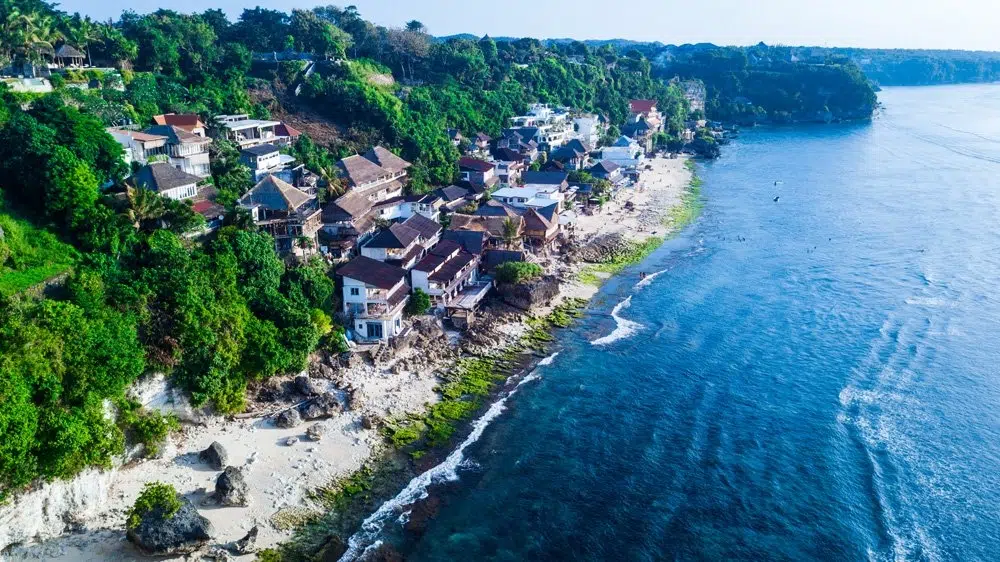
Prime beachfront properties in Uluwatu are always sought after; it’s only natural that properties in such an area commands higher prices than most.
It’s important to note that as a foreigner, you’ll likely pay some premium compared to local buyers.
That’s just the cost of not speaking Indonesian and buying through a foreign ownership structure – presumably with legal fees added on top.
With that said, Bali still offers value for money when compared to Asia’s other tropical destinations like Phuket or Penang.
Searching for Real Estate in Bali
With your ownership strategy and location preferences in mind, it’s time to start your property search. Here are some tips:
- Work with a trusted real estate agent who specializes in helping foreigners. They can guide you to the best areas, provide market insights, and help navigate any cultural or language barriers.
- Be clear on your criteria, such as budget, property type (villa, apartment, land), and intended use (personal residence, rental investment, etc.).
- Conduct thorough due diligence on any property that catches your eye. Verify ownership, building permits, zoning regulations, and access rights. A professional inspector can assess the condition of the structure.
- If purchasing in a development, research the developer’s track record and the project’s legal standing. Some developers may promise freehold title transfer if laws change, but these pledges aren’t legally binding.
Negotiating and Closing the Deal
Found your slice of paradise in Bali? Here’s how to seal the deal:
- Make a fair offer based on market comparables and your agent’s advice. In Bali, negotiations typically start around 10% below the asking price.
- Engage a notary to draft a detailed Sales and Purchase Agreement (SPA) that protects your interests.
- Upon signing, you’ll typically pay a 10% deposit, with the balance due at closing. Always transfer funds to an account matching the owner’s name on the certificate.
- Before final transfer, ensure all taxes are paid, including the 5% Transfer Tax (BPHTB) and any outstanding Land and Building Tax (PBB).
- Once checks are complete, the notary will register the transfer with the land office and you’ll receive your certificates of ownership or lease. Congratulations!
Living in Bali: Visa Considerations
For many, buying property in Bali is a prelude to retirement on the island. If this is your plan, there are a few key things to consider:
- Retirement visa: To retire in Bali, you’ll need a retirement KITAS visa. This requires proof of income, health insurance, a lease agreement, and employing at least two Indonesian citizens.
- Cost of living: While Bali offers a high quality of life at a lower cost than many Western countries, budget for expenses like housing, transportation, healthcare, and entertainment.
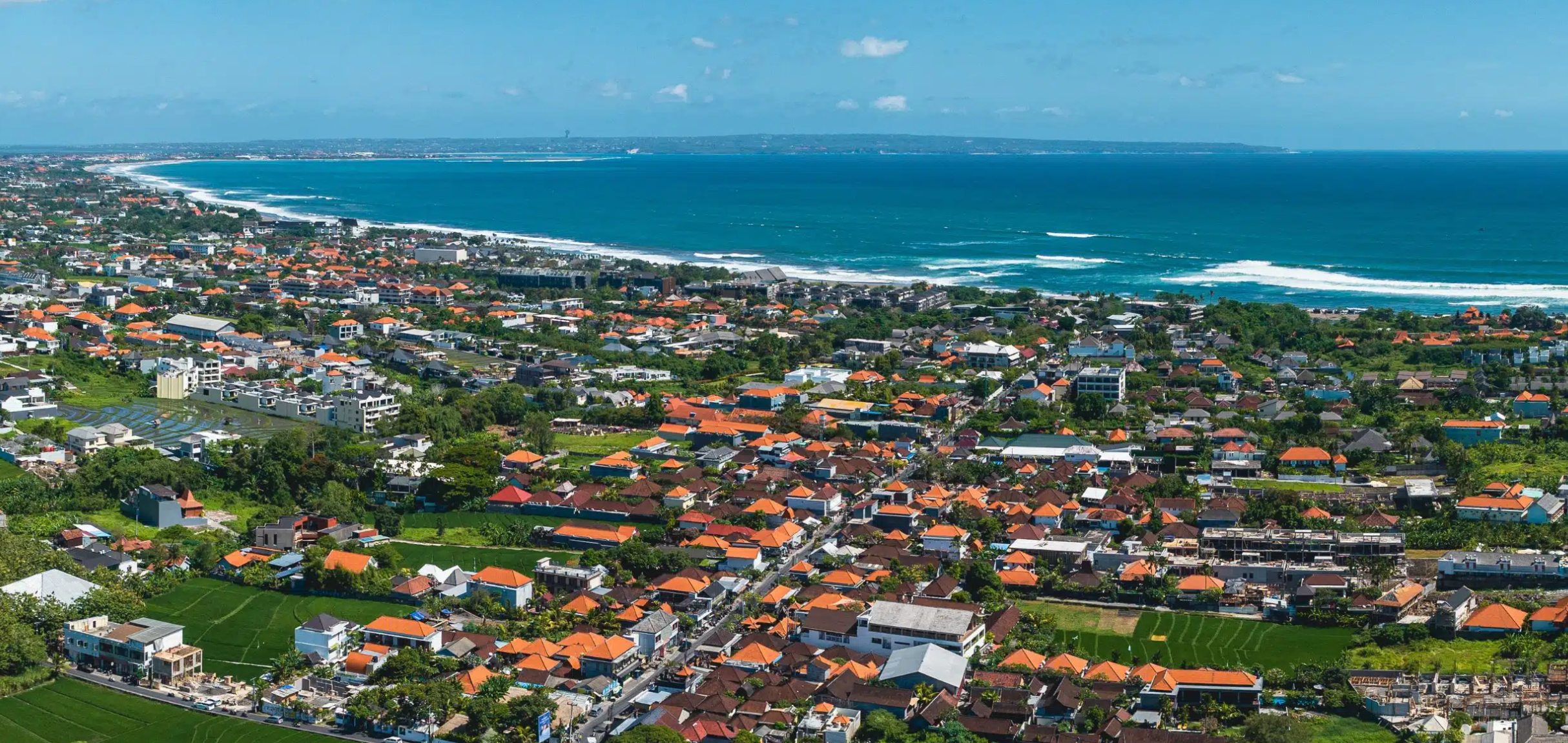
If you’re looking to buy real estate in Bali for retirement purposes, then leasehold ownership might not be a deal-breaker. Where will you be in 80 years?
- Retirement visa: To retire in Bali, you’ll need a retirement KITAS visa. This requires proof of income, health insurance, a lease agreement, and employing at least two Indonesian citizens.
- Cost of living: While Bali offers a high quality of life at a lower cost than many Western countries, budget for expenses like housing, transportation, healthcare, and entertainment.
- Healthcare: Bali has several international-standard hospitals and clinics, but comprehensive health insurance is a must. Consider proximity to healthcare facilities when choosing your location.
- Culture and language: Bali’s unique Hindu culture and laid-back pace of life are a big part of its appeal. However, adjusting to a new language and customs can take time. Being open-minded and respectful goes a long way.
- Taxes: As a retiree, you’ll still be responsible for paying Indonesian taxes, including property taxes and income tax on any local earnings. Consult with a tax professional to understand your obligations.
Bali’s property market can be a rewarding way to secure your retirement dream. Yet it’s crucial to approach the process armed with local knowledge.
Foreign ownership in Indonesia remains complicated. If you’re purely making a lifestyle purchase and don’t mind leaseholds, then by all means purchase a home in Bali.
As an investment though, consider other frontier markets in Asia that allow foreign freehold ownership in some form such as the Philippines or Cambodia.
FAQs: Bali Real Estate
How Much Are Rental Yields in Bali?
Rental yields in Bali are around 5% on average. With that said, this can differ widely based on location, size, and quality of the property you're trying to rent.
Generally speaking, smaller properties in Bali yield higher than larger ones. Condos and apartments also have superior rental yields compared to houses and other types of landed real estate.
Can Foreigners Own Real Estate in Bali?
Indonesian law prohibits foreigners from directly owning freehold land, known as Hak Milik. However, there are several alternative arrangements that allow foreign investors to control and benefit from Bali property.
Leasehold (Hak Sewa) enables leasing land and property for up to 80 years. While you won't own the land outright, you'll have full control over any structures you build on it.
Right to Use (Hak Pakai) grants foreigners with a valid stay permit (KITAS) the right to use the land for up to 80 years. This title can be held in your personal name.
How Much Does a House in Bali Cost?
Real estate values in Bali vary widely depending on the location, type of property, and quality of construction.
Of course, prime beachfront land or properties in highly sought-after locations such as Seminyak or Uluwatu will command much higher prices. Luxury villas in Bali at the highest end can easily reach into the millions of dollars.
Where is Bali's Most Expensive Neighborhood?
Prime beachfront areas in southern Bali are home to the island's most expensive real estate. Seminyak, known for its high-end resorts, trendy restaurants, and luxury boutiques, is a top choice for villa rentals and attracts a sophisticated crowd willing to pay a premium.
Uluwatu, perched on Bali's dramatic southern cliffs, is another ultra-high-end enclave famous for its world-class surfing and spectacular ocean views. Luxury cliff-front villas here can easily fetch millions of dollars.
Of course, the most expensive homes are often unlisted, trading quietly off-market to the global elite.





